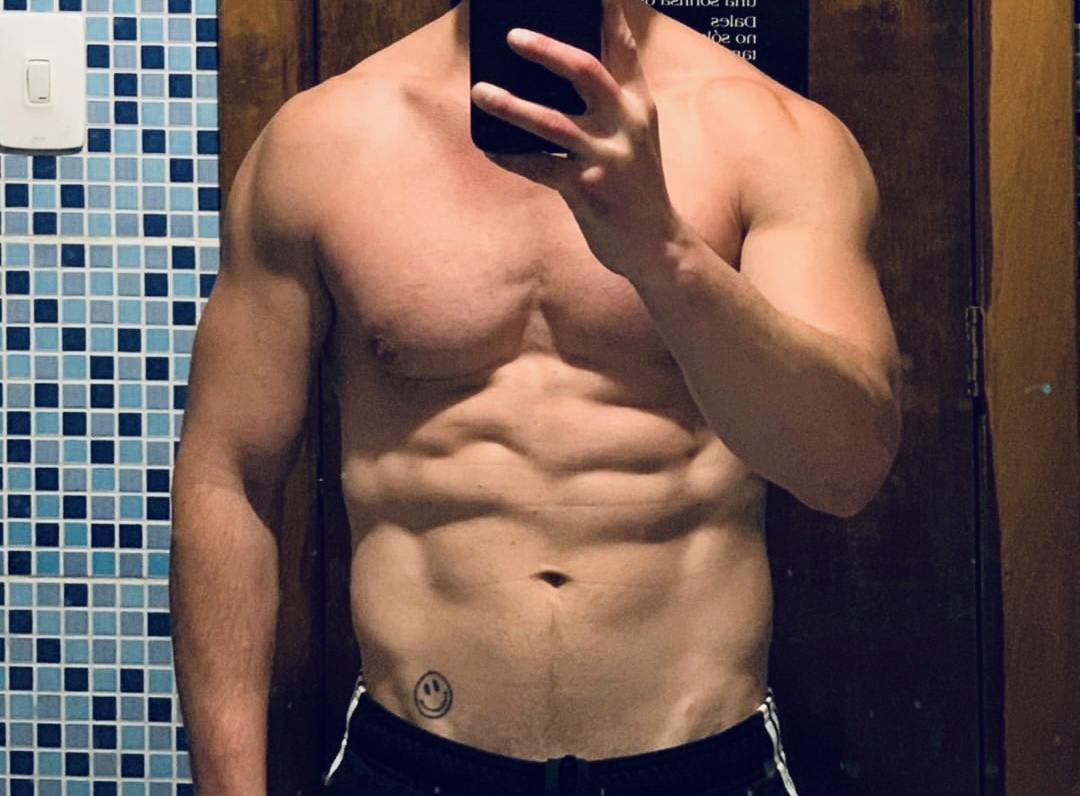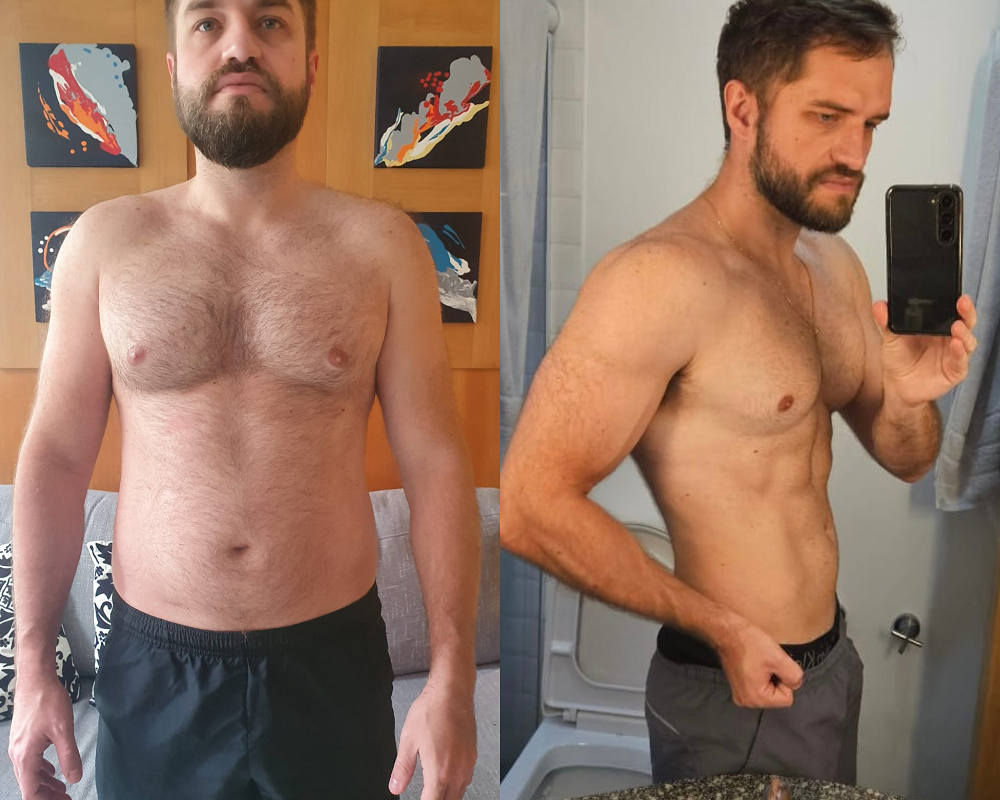I’m a fat kid at heart.
Growing up, I loved nothing more than to roll out of bed in the morning and have a large, sugary breakfast to start the day.
Every morning, I would load up on bowls of cereal, get a massive sugar high, feel like I could do 1000 push-ups..
Only to crash an hour later when I arrived at school.
I had no idea what I was doing. But even back then, I could tell this wasn’t working.
Listen.
A conventional breakfast of cereal, eggs, toast, pancakes, juice, etc. is a DEATH SENTENCE for your energy, focus, performance and ultimately your quality of life.
I don’t care if it’s “healthy” or the crap I used to eat.
A big meal will always slow you down and put your brain in energy-saving mode.
Feels great initially.. but then.. you’re left playing catch-up for the rest of the day.
Slow, sedated, numb.
After triggering the “rest and digest” branch of your nervous system your resources are spent on breaking down and assimilating the meal you just ate.
Instead of being wide awake and hungry for life, you’re zoned out and hungry for the next dopamine hit.
And this is the sad reality many of you are facing every day.
Stay Hungry to Unlock Your Full Potential
“It is good for workers to have an appetite; an empty stomach drives them on.” – Proverbs 16:26
Breakfast is the most important meal of the day?
Sure, Mr. Kellogg.
Looking back in history, breakfast was, for the most part, a very simple meal.
A small serving of bread, milk or cheese, or some leftovers from the night before.
Benjamin Franklin ate a piece of bread with a glass of milk. During his reign in Rome, Julius Caesar’s breakfast reportedly consisted of a little bread with olives and maybe some cheese.
Big breakfasts are a modern phenomenon. One I all too gladly adopted as a kid.
Not anymore.
These days, I wake up, drink some water, down a shot of espresso and I’m ready to go.
If I eat during the day (which I recommend you do), it’s a piece or two of fruit or a small serving of protein (ie. yogurt or kefir).
I keep my food intake to a necessary minimum until the day’s work is completed.
I do not want a big dopamine spike after a full meal because it inevitably puts me in a lesser state.
It makes me lazy and docile. It makes me dumber.
As Ben Franklin aptly put it, “A full belly makes a dull brain.”
Not a good place to be when you have to face your daily responsibilities.
Stay hungry. Stay sharp.
Evening is the best time to refuel and compensate for the demands of the day.
And this is critical.
For this to work, you must eat the equivalent of 2-3 meals at dinner. You have to eat BIG.
Today’s dinner is tomorrow’s performance.
If you fail to compensate your body you will crash and burn. (The exception here is limiting food consumption strategically to trigger a specific metabolic response)
My dinners are glorious.
I eat what I want and as much as I want. No food groups or macronutrients are off-limits. And yes, on most nights, I have dessert too.
I don’t restrict carbs and I certainly do not eat (or ever recommend) a low-fat diet.
The high you get from eating after having disciplined your hunger all day is unmatched..
And so are the results.
Unlike anything you could experience on a standard diet.
After I’m done polishing off enough food to sustain a family of four, I relax with my wife, maybe watch some mindless TV, hit the sheets and sleep like a rock.
Trust me when I say, I wouldn’t talk about this if the benefits were relegated to a minor spike in energy and the ability to eat like a pig at night without getting fat.
“But what about sleep? I have a hard time sleeping after a big dinner.”
You will have the best sleep of your life on this protocol as long as 1.) you keep daytime eating to a MINIMUM and 2.) you do not go completely overboard at dinner.
You will also notice vast improvements in digestion after adapting to this daily cycle of famine and feast.
You’ll be able to eat a substantial amount of food without batting an eye.
Eating one meal a day bulletproofed my stomach.
But it doesn’t stop there.
What if I told you you won’t fatigue during the day anymore?
What if I told you you’ll be your strongest and most resilient (aka in the gym) when following this routine?
What if I told you that you would have more drive and a more positive outlook on life if you did this every day?
Too good to be true? Only one way to find out.
Think about this what you will but I’m telling you, after a brief adaptation phase you will never want to go back.
Unless you’re one of those “live to eat” type people, whose sole purpose in life is to fill their belly, the results are simply too good to leave on the table.
And results are the bottom line.
Why not OMAD for lunch?
A question I frequently get asked is, “Why not eat a big meal earlier in the day and skip dinner altogether (ie. early OMAD)?”
Simple.
It completely defeats the purpose.
If I have a substantial meal earlier in the day I lose my edge. I get sluggish, lazy, and too comfortable.
Not where I want to be at 2 in the afternoon.
Physical performance is also in the gutter if I train after a large meal (even if many hours have passed between eating and training).
There are simply no upsides to eating during the day for me. None.
So I don’t mess around anymore.
After over 2 decades of trial and error, I know what works and don’t need to convince anyone of my ways.
I let the results do the talking.
Look at team member Ricardo.
He cut 11kg of bodyfat and is stronger than he’s ever been.
When he first came to me, he was micromanaging his diet, worrying about all the details, with no results to show.
Now, Ricardo eats 1-2 meals a day and doesn’t stress about calories, macronutrients or going catabolic during his fasting window.
He doesn’t worry about pre or post-workout nutrition.
He doesn’t worry about all the details you’re so preoccupied with.
Yet, he’s JACKED and banging out sets of handstand push-ups like it’s nothing.
We’re not farm animals.
We do not function well on a full (even semi-full) stomach.
You are your best, your sharpest, your most lethal on empty.
Live accordingly.
V


Leave a Reply